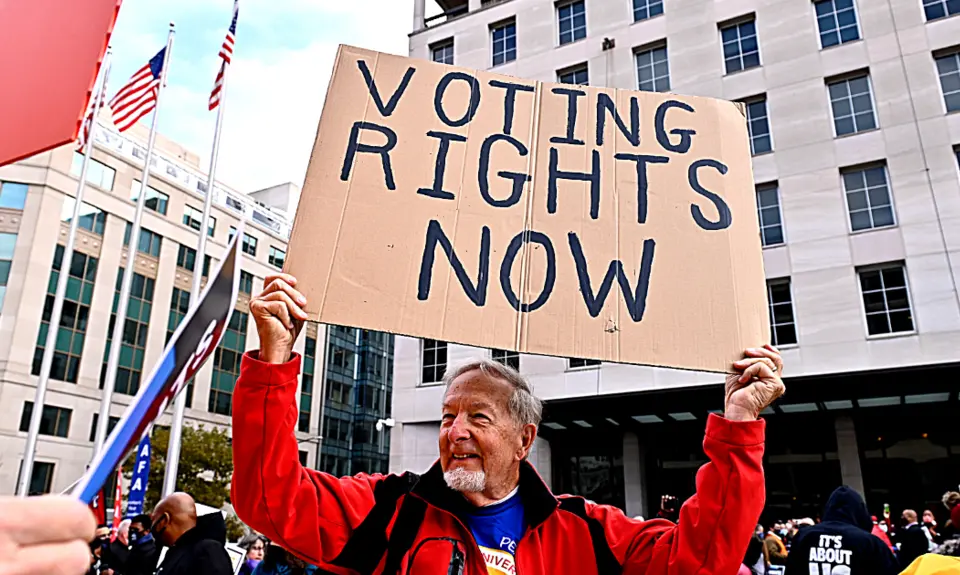“Confirmed Judges, Confirmed Fears” is a blog series documenting the harmful impact of President Trump’s judges on Americans’ rights and liberties. It includes judges nominated in both his first and second terms.
Judge Jonathan Kobes, who was nominated by Donald Trump to the Eighth Circuit court of appeals, cast the deciding vote in a 2-1 decision that weakened the Voting Rights Act (VRA) by ruling that private individuals cannot sue under 42 U.S.C. 1983 to enforce violations of Section 2 of VRA. Chief Judge Steve Collotton, who was nominated by President George W Bush, dissented from the May 2025 ruling in Turtle Mountain Band of Chippewa Indians v Howe.
What happened in this case?
In 2021, the Turtle Mountain Band of Chippewa Indians and other Native American voters filed suit against North Dakota for improperly diluting Native American voting strength through its voting redistricting. They contended that this violated section 2 of the VRA and also the general federal civil rights statute against state misconduct, 42 U.S.C. 1983.
After a bench trial, the district court ruled that the state redistricting plan was illegal because it harmed Native Americans and enjoined its use. The state appealed.
What was the issue in this case?
This case extends and worsens the impact of a damaging 2023 Eighth Circuit case that held that private parties cannot go to court to enforce Section 2 of the Voting Rights Act (VRA), which prohibits racist voter dilution schemes.
The issue in the current case involved another civil rights statute called Section 1983, which lets a person sue when their individual rights under federal law are violated. The question was whether, notwithstanding the ruling in the earlier case, Section 2 creates an “individual right” that can be remedied by an individual under Section 1983.
]
How did Kobes and the Eighth Circuit rule and why is the result harmful?
Trump judge Kobes joined George W Bush judge Ray Gruender in a 2-1 decision that reversed the lower court. The majority expanded the ruling in the Arkansas State Conference NAACP case. They interpreted the case to mean that Section 2 does not provide any individual right. Therefore, they ruled that private parties like the North Dakota Indians cannot use 42 USC 1983 to pursue claims of vote dilution under the VRA. As a result, Gruender and Kobes vacated the district court judgment and dismissed the case completely.
Chief Judge Steve Collotton, a conservative judge nominated by George W Bush, strongly dissented. He took issue with the Court’s earlier decision, noting that since 1982, private plaintiffs had “brought more than 400 actions” under Section 2 that resulted in decisions, all of which, should have been dismissed” under the majority’s reasoning. Having noted that this conclusion was wrong and had been rejected by most courts, Collotton went on to examine the current issue before the court. He carefully analyzed the facts of the case, as well as the VRA and applicable precedent. He concluded that Section 2 clearly “confers an individual right” on voters, and that the prohibition on vote dilution and similar violations is subject to “private enforcement of the right under section 1983.”
The decision made possible by Trump judge Kobes obviously harms the voting rights of the Chippewa Indians and others in North Dakota. It sets yet another bad voting rights precedent in the Eighth Circuit, which includes North and South Dakota, Iowa, Minnesota, Missouri, Arkansas, and Nebraska, at the hands of Trump judges. In addition, the case illustrates the importance of our federal courts to health, welfare and justice and the significance of having fair-minded judges on the federal bench.
